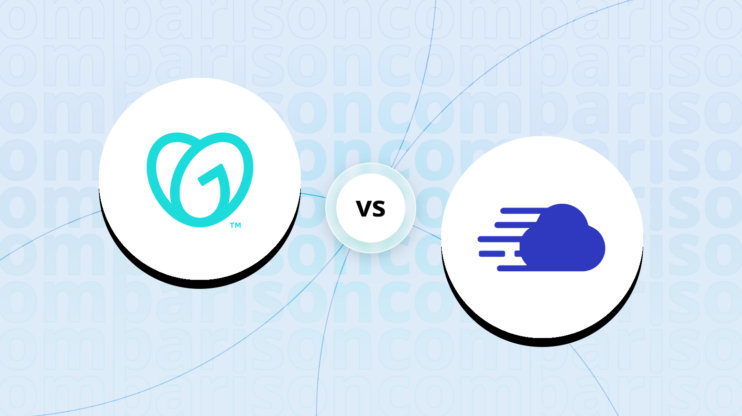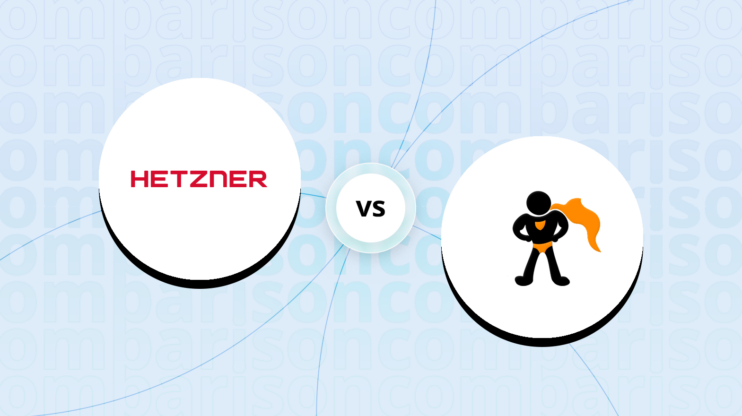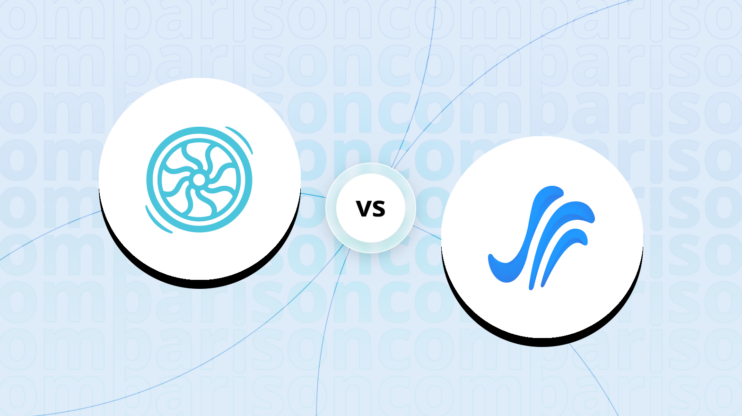Leaseweb vs Web Hosting Hub: Final verdict
Looking over Leaseweb vs. Web Hosting Hub, both offer unique strengths and cater to different user needs.
-
Leaseweb (Overall grade: 8.0)
provides high-performance servers and an extensive array of hosting options including VPS and dedicated hosting. Its global network of data centers and a strong uptime guarantee of 99.999% make it ideal for high-traffic websites and enterprise-level users. Benefits include significant network bandwidth, robust security measures, and comprehensive compliance with GDPR and PCI standards. However, its lack of user-friendly features like a free website builder and the absence of specific automated scaling options might not appeal to less technical users or small businesses seeking straightforward setup and management. -
Web Hosting Hub (Overall grade: 7.5)
caters well to small businesses and individual users looking for affordability and ease of use. It shines with excellent uptime and performance, thanks to free SSDs and unlimited bandwidth across all plans. The inclusion of a free domain, SSL certificates, and a user-friendly website builder like BoldGrid makes it attractive to beginners. Web Hosting Hub also provides thorough customer support and competitive pricing. However, it lacks the advanced server flexibility and extensive global reach that Leaseweb offers, potentially limiting its effectiveness for larger enterprises or highly technical applications.
 Overall grade:8.0 |
 Overall grade:7.5 |
|
|---|---|---|
| Uptime and Availability | 8.7 | 9.2 |
| Hosting Performance | 8.6 | 5.0 |
| Hosting Security | 8.3 | 8.0 |
| Price | 8.3 | 7.6 |
| Hosting Features | 6.8 | 6.9 |
| Ease Of Setup | 7.1 | 8.8 |
| User Management | 7.0 | 7.1 |
| Customer Support | 9.1 | 7.8 |
| User feedback | 2.8/5 | 4.5/5 |
Hosting types offered
Both platforms provide a variety of hosting types, each designed to meet the different needs of users.
 |
 |
|
|---|---|---|
| Shared hosting | ||
| Cloud hosting | ||
| WordPress hosting | ||
| Ecommerce hosting | ||
| VPS hosting | ||
| Dedicated hosting |
Although both offer a variety of hosting plans tailored to different needs, in
certain cases, one platform may prove to be more suitable.
Detailed comparison
Uptime and availability
Evaluates the average uptime statistics, uptime guarantee and overall availability of the hosting
provider
Score Components:
- Uptime percentage (30%): evaluates the uptime statistics in given period of time
- Uptime guarantee (20%): Assesses if the platform offers an uptime guarantee and
whether the actual uptime matches the promised guarantee. - General performance (25%): Evaluates how fast is the average response time and overall
it’s stability. - Responsiveness (10%): Adaptability to different devices and screen sizes.
- Availability (25%): Reflects the total downtime and number of outages.
 8.7
8.7
 9.2
9.2
🏆 Winner Web Hosting Hub: Excellent uptime and great performance at competitive pricing.

Leaseweb offers an impressive core uptime guarantee of 99.999% and maintains high performance through its data centers across the globe. Their network capacity exceeds 10 Tbps and is peered with over 2000 ISPs, ensuring smooth service delivery. Customer support through multiple channels is available, though response times vary based on the hosting plan. Their shared hosting uptime, while not as stellar as their core guarantee, still shows strong reliability.

Web Hosting Hub stands out with its best speed and uptime, backed by free SSDs and unlimited bandwidth on all plans. They offer competitive pricing across their Spark, Nitro, and Dynamo plans, which come with varied performance levels. With a free domain, private SSL, and comprehensive customer support available 24/7, Web Hosting Hub proves to be an excellent choice for those looking for reliable and speedy hosting solutions.
Which one has better hosting performance?
Score Components:
- Hosting speed (30%): This includes SSD quality, Load times, PageSpeed score ranges,
additional information on website speed, built-in plugins for performance enhancement, available caching
methods, and CPU/RAM options - CDN (20%): Considers whether CDN is available or not, whether it’s free or paid, and
the quality of the CDN service - Available data centers (30%): Evaluates the number of data centers and their locations
globally. - Scalibility (20%): Looks at whether elastic scaling is available, the process required
to scale (manual upgrade vs. automatic scaling), the presence of dedicated servers, and the costs
associated with scaling.
 8.6
8.6
 5.0
5.0
🏆 Winner
Leaseweb: Offers high performance servers, attractive pricing, and a global network.
When comparing Leaseweb and Web Hosting Hub on general performance, Leaseweb stands out with its high-performance servers featuring CPUs up to 64 cores, large memory capacity, and flexible configurations including GPU support. Leaseweb offers a global network with 43 points of presence, ensuring high-speed, low-latency connectivity. In contrast, Web Hosting Hub provides tiered plans with varying memory and process limits, but doesn’t match Leaseweb’s server flexibility or networking reach. Both providers offer SSD storage, but Web Hosting Hub includes built-in performance enhancements like free SSDs and caching options. Leaseweb excels with its high availability and extensive data center presence globally.
Website Speed
Website speed is a crucial factor where Leaseweb takes the lead. Leaseweb’s high bandwidth servers with up to 100Gbps ports and top-tier datacenter hardware offer uncompromising performance. The high IOPS and powerful CPUs ensure rapid processing, which translates to faster load times for sites. Web Hosting Hub offers decent speed with SSDs and various performance-enhancing plugins, but the resources are limited compared to Leaseweb’s high-tier configurations. Leaseweb’s network monitoring further optimizes performance, while Web Hosting Hub’s speeds are typically moderate and suited for smaller businesses or personal sites.
Scalability
Scalability also looks better with Leaseweb. It offers flexible configurations and dedicated servers, allowing businesses to scale according to their needs without overhauling their plans. While specific pricing for scaling isn’t detailed, the ability to customize servers with high bandwidth and compute capabilities suggests a smooth scaling process. Web Hosting Hub offers different plans that businesses need to upgrade manually. They don’t appear to provide dedicated servers, focusing instead on shared hosting plans, which could limit scalability for growing businesses. This indicates that scaling with Web Hosting Hub might require plan upgrades rather than automatic adjustments.
Which one has better security features?
and regulatory requirements
Score Components:
- Technical security measures (40%): This includes encryption, firewalls, DDoS
protection, secure configurations, server monitoring, access control and availability of security addons
(e.g Sitelock security). - Operational security measures (30%): Encompasses data privacy, backups and data
redundancy. - Compliance and certifications (20%): Adherence to legal and regulatory requirements
(e.g., GDPR, HIPAA) and possession of certifications (e.g., ISO 27001, SOC 2). - Business and reliability (10%): Factors in the provider’s reputation, uptime
guarantees, and customer support.
 8.3
8.3
 8.0
8.0
🏆 Winner Leaseweb: Leaseweb provides a robust set of advanced security features tailored for businesses requiring high standards of security and compliance.
Both Leaseweb and Web Hosting Hub, have notable differences in their approaches to technical and operational
security, as well as in their compliance with regulations.
Technical security measures:
Leaseweb and Web Hosting Hub offer essential technical security measures but with varying degrees of sophistication. Leaseweb excels with its Managed Cyber Security offering, which includes SIEM SOC Services for detailed monitoring and proactive threat response, alongside regular penetration testing through Northwave collaboration. On the other hand, Web Hosting Hub simplifies security with features like suPHP encryption and advanced policy firewall protection. SSL certificates are available from both providers, but Web Hosting Hub offers them for free and also supports third-party SSLs. Leaseweb supports hardware-based DDoS IP protection, providing an additional layer of defense against large-scale attacks. PHP versions are explicitly mentioned as PHP 7 for Web Hosting Hub, which is known for enhanced security and performance, while Leaseweb’s PHP version support is not specified.
Operational security measures:
Both hosting providers demonstrate a commitment to operational security. Leaseweb’s Security Operations Center (SOC) team operates 24/7 to monitor environments and respond to threats, ensuring continuous protection. Web Hosting Hub also offers 24/7/365 U.S.-based support, making assistance readily available. Backup solutions are another focal point for operational security. Leaseweb provides enterprise-grade Acronis Backup ranging from 25GB to 500GB, while Web Hosting Hub allows for easy creation of backups with its tool and automatic daily cPanel account backups at a minimal cost. Additionally, Leaseweb’s customizable security profiles and dashboards offer comprehensive oversight for proactive security management.
Compliance and certifications:
Leaseweb shines with specified compliance to GDPR and PCI standards, ensuring the protection of personal data and secure handling of credit card information. Conversely, Web Hosting Hub emphasizes data security and privacy but does not explicitly state adherence to GDPR or PCI compliance, nor does it mention HIPAA compliance. Both providers include a cookie policy as part of their security measures, but Leaseweb’s compliance with major data protection regulations gives it an edge in this category.
 |
 |
|
|---|---|---|
SSL certificate |
Yes |
Free |
Additional security features |
DDoS IP Protection, Customizable Security |
Advanced Firewall, suPHP, IP Blocking |
PHP versions |
Not specified |
PHP 7 |
GDPR compliance |
Yes |
Not specified |
HIPAA compliance |
Not specified |
Not specified |
PCI compliance |
Yes |
Not specified |
Hosting features
Score Components:
- Domains (20%): Assesses the availability of a free domain, domain purchase options, and
pricing - Email (15%): Considers if the provider offers full email hosting, or is reselling
third-party service, and if the email is only transactional or not - Website builder (15%): Checks if website builder is available, and it’s user
friendliness and overall the level of customization allowed. - Staging environment (20%): Determines if a staging environment is available, allowing
for testing changes before going live. - FTP & SFTP accounts (10%): Evaluates if and how easily users can access FTP and
SFTP accounts - Git and SSH access (20%): Assess whether Git is integrated into the hosting service and
if SSH access is provided
 6.8
6.8
 6.9
6.9
Winner: Web Hosting Hub: A feature-rich hosting provider offering robust plans and excellent customer support.
Leaseweb and Web Hosting Hub both offer different advantages tailored to meet various user needs. Leaseweb focuses on providing flexible and scalable solutions with their VPS hosting, which supports a wide range of operating systems and easy management through a customer portal. They offer three web hosting plans with varying SSD storage capacities and mailbox quantities, targeting users with different storage and email needs. On the other hand, Web Hosting Hub includes numerous free services that cater to budget-sensitive customers, such as a free domain, free SSDs, and free SSL certificates. Additionally, their pricing structure offers significant discounts for new customers, which can be a persuasive factor for individuals and small businesses looking to minimize initial expenses.
When it comes to ease of website creation and management, Web Hosting Hub stands out with its inclusive website builder, BoldGrid. This drag-and-drop builder is user-friendly and facilitates both novice users and experienced developers in crafting complex websites without needing intricate coding skills. Leaseweb, while comprehensive in its offerings, does not explicitly provide a free website builder; it instead emphasizes powerful control panels like Plesk for managing websites and applications. Moreover, Web Hosting Hub provides automatic WordPress and PrestaShop installations, making it simpler for users to set up e-commerce sites or blogs swiftly. Unique benefits such as free advertising credits and the comprehensive support available round the clock also make Web Hosting Hub an appealing option for those seeking extensive features and reliable assistance.
 |
 |
|
|---|---|---|
| Free domain | No | Yes |
| Free SSL | No | Yes |
| Email hosting | Yes | Yes |
| Website builder | No | Yes, BoldGrid |
| Staging environment | No | No |
| FTP & SFTP accounts | Yes | Yes |
| Git and SSH access | Yes | Yes |
| Free backup | No | $1/month |
| Money back guarantee | No | Yes, 90 days |
a location.
As a result in rare cases the features mentioned here can differ from the ones you see on their websites.
Web Hosting Hub offers unlimited email accounts across all their plans, plus features like email forwarding, SPAM protection, and secure POP3/IMAP email access. While Leaseweb provides substantial email hosting capabilities tailored to their package limits (from 10 to 250 mailboxes), they do not match Web Hosting Hub’s unlimited offerings. Web Hosting Hub also supports email on any device, adding flexibility for managing emails on the go. Neither provider explicitly mentions transactional email capabilities, but Web Hosting Hub’s extensive email hosting features and user-friendly management tools take the lead in this area.
Price
Score Components:
- Plan value (40%): What each pricing tier offers.
- Transparency and clarity (30%): Clearness of pricing structures.
- Flexibility of plans (20%): Range of options to suit different budgets.
- Hidden costs (10%): Additional expenses not included in the plan.
 8.3
8.3
 7.6
7.6
🏆 Winner Leaseweb:Reliable hosting solutions with an extensive array of options.
Evaluating the pricing of plans among various hosting providers can be complex due to their differing pricing and renewal strategies. Additionally, certain plans require annual commitments, which adds to the difficulty of making comparisons. The prices listed are based on monthly commitments; plans requiring annual commitments are indicated. Additionally, although some providers offer identical plans for WordPress and shared hosting, we have created separate tables for each to enhance clarity.
Leaseweb and Web Hosting Hub offer a range of hosting plans that vary in pricing, features, and commitments. Leaseweb provides numerous options, including web hosting, domain registration, dedicated server hosting, VPS hosting, and cloud solutions, making it a versatile choice for various needs. On the other hand, Web Hosting Hub focuses primarily on shared hosting with three key plans: Spark, Nitro, and Dynamo. These plans are straightforward and offer a 90-day money-back guarantee, SSD storage, and 24/7 support. Leaseweb stands out with its comprehensive options and competitive pricing, making it a preferable choice for both individual users and enterprises seeking more features and flexibility.
 |
 |
|---|---|
|
N/A
|
Spark$11.99:
2 websites, unlimited storage, unlimited bandwidth, standard support, free domain and SSL, $1/mo backups, 90-day money-back Value for price:7.0
|
|
N/A
|
Nitro$15.49:
Unlimited websites, unlimited storage, unlimited bandwidth, 2X performance, free domain and SSL, $1/mo backups, 90-day money-back Value for price:8.0
|
|
N/A
|
Dynamo$20.49:
Unlimited websites, unlimited storage, unlimited bandwidth, 4X performance, free domain and SSL, $1/mo backups, 90-day money-back Value for price:8.5
|
 |
 |
|---|---|
|
Small€5.99:
1 website, 25 GB SSD, limited bandwidth, 24/7 support, 10 mailboxes, 1-day delivery Value for price:7.5
|
Spark$11.99:
2 websites, unlimited storage, unlimited bandwidth, standard support, free domain and SSL, $1/mo backups, 90-day money-back Value for price:7.0
|
|
Medium€8.99:
1 website, 100 GB SSD, limited bandwidth, 24/7 support, 50 mailboxes, 1-day delivery Value for price:8.0
|
Nitro$15.49:
Unlimited websites, unlimited storage, unlimited bandwidth, 2X performance, free domain and SSL, $1/mo backups, 90-day money-back Value for price:8.0
|
|
Large€10.99:
1 website, 250 GB SSD, limited bandwidth, 24/7 support, 250 mailboxes, 1-day delivery Value for price:8.5
|
Dynamo$20.49:
Unlimited websites, unlimited storage, unlimited bandwidth, 4X performance, free domain and SSL, $1/mo backups, 90-day money-back Value for price:8.5
|
 |
 |
|---|---|
|
Public CloudCustom pricing:
Scalable, advanced API automation, free domain, enhanced performance Value for price:8.0
|
N/A
|
|
Elastic ComputeCustom pricing:
Flexible compute resource pools, on-demand and reserved billing, extensive networking Value for price:8.0
|
N/A
|
|
VMware vCloudCustom pricing:
Flexible, scalable resource pools, seamless public/private connection Value for price:8.5
|
N/A
|
|
Hybrid CloudCustom pricing:
Combines public/private infrastructures, data insurance, maximum security Value for price:9.0
|
N/A
|
Enterprise plans
Leaseweb offers extensive options for enterprises with its Dedicated Server Hosting and High Bandwidth Servers. Plans range from single quad-core to dual deca-core processors, offering high-performance specifications and significant storage options tailored to large-scale operations. Web Hosting Hub, however, lacks a dedicated enterprise-focused offering, primarily targeting individual users and small businesses with its shared hosting plans. The flexibility and breadth of Leaseweb’s enterprise solutions make it a superior choice for larger businesses seeking robust infrastructure and comprehensive service options.
Leaseweb vs Web Hosting Hub: Ease of setup
platform.
Score Components:
- Site migration (25%): Assesses whether the provider offers tools for site migration,
either automated or manual, and whether these services are free or require a fee. - Admin panel usability (35%): Evaluates the type of admin panel provided, such as the
standard cPanel or a custom solution, focusing on its accessibility and user-friendliness for both
technical and non-technical users. - Setup features (20%): Examines the availability and ease of use of various setup
features, including FTP accounts, file managers, email account setup, PHPMyAdmin, and easy CDN
configuration. - Help center quality (20%): Measures the quality and accessibility of the provider’s
help center resources, including articles and tutorials.
 7.1
7.1
 8.8
8.8
🏆 Winner Web Hosting Hub: A user-friendly experience with extensive ease-of-setup features and support resources.
When comparing the admin panels of Leaseweb and Web Hosting Hub, Leaseweb provides a custom Customer Portal designed to handle account management, monitoring, and network configurations. It caters to both technical and non-technical users by offering features like password resetting and API management. On the other hand, Web Hosting Hub uses the popular cPanel which includes a drag-and-drop interface accessible to users of all skill levels. It also includes tools like BoldGrid for website building, which may be more appealing to beginners due to its user-friendly design.
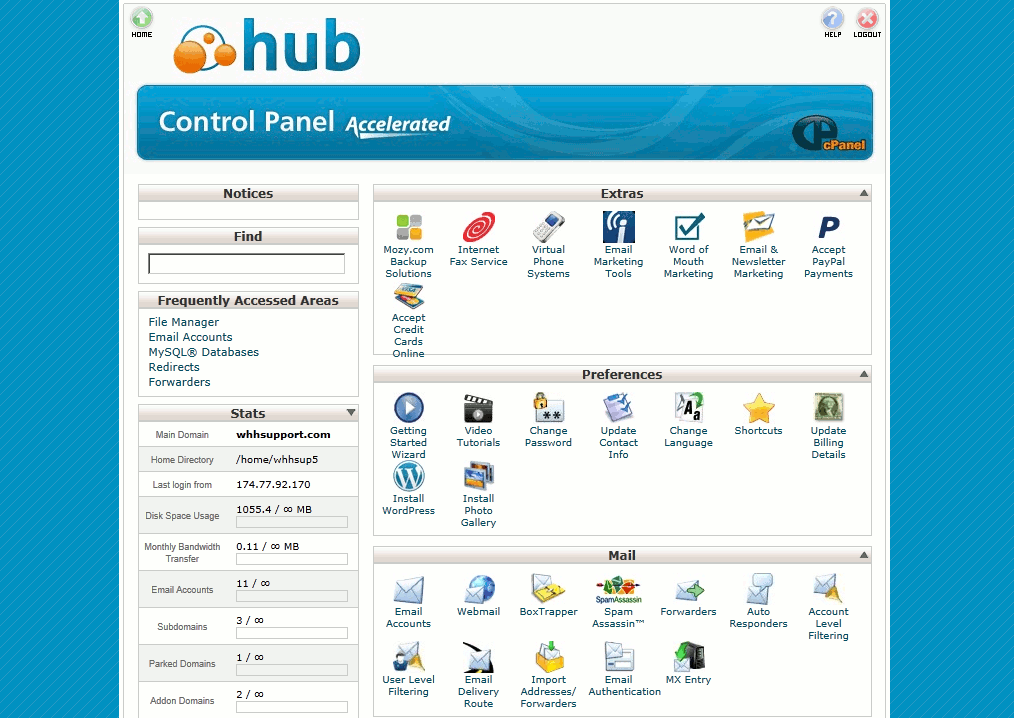
Leaseweb offers a linear setup process where users follow specific steps to get their service up and running. It primarily focuses on more advanced hosting solutions like dedicated servers and private clouds, offering various resources to manage these services efficiently. Web Hosting Hub, however, simplifies the process with a 1-click installer and pre-installed applications like WordPress and PrestaShop. This makes it easier for beginners to launch their websites without having to manually perform installations. The inclusion of a free website builder further streamlines the setup for users who lack technical expertise.
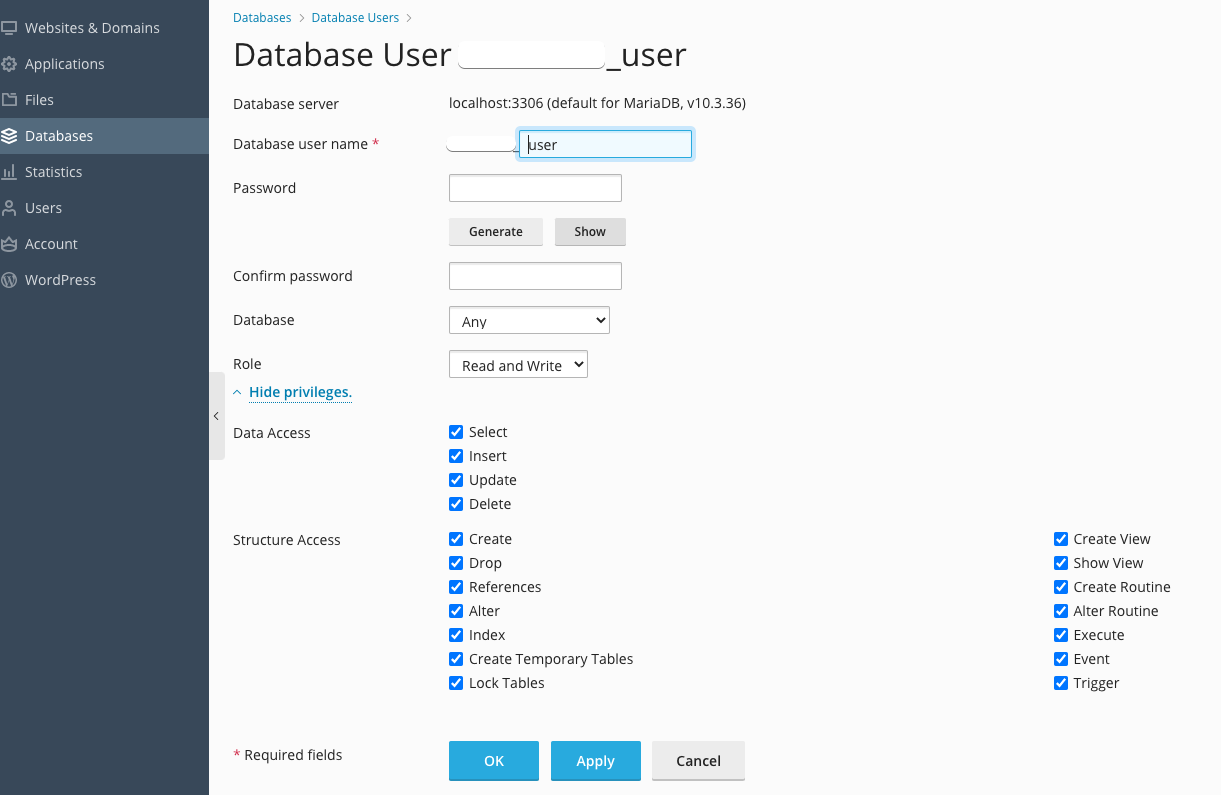
Regarding migration tools, Web Hosting Hub offers automated tools for moving existing websites, including domain transfers at no cost. This can save time for users migrating from other hosts. Leaseweb does not specifically highlight migration tools but offers comprehensive support that could guide users through manual migration processes. This might require more effort and technical knowledge compared to the automated solutions provided by Web Hosting Hub.
Leaseweb and Web Hosting Hub both have extensive help centers with articles and tutorials. Leaseweb’s knowledge base covers a wide range of products and services including network management, compliance, and security. It offers a variety of resources for troubleshooting and managing complex hosting environments. Web Hosting Hub’s Help Center provides numerous tutorials and a community Q&A section, which can be particularly helpful for beginners. The resources are designed to be easily understandable, covering topics from basic website building to advanced email setup.
User management
accessibility.
Score Components:
- Role customization (40%): Flexibility in creating and defining user roles and
permissions. - Ease of management (30%): User interface and tools for managing users.
- Access control (20%): Effectiveness of access control measures for different user
levels. - Scalability (10%): Ability to manage a growing number of users efficiently.
 7.0
7.0
 7.1
7.1
🏆 Winner Web Hosting Hub: Offers comprehensive user management and versatile access control features.
Both Leasingweb and Web Hosting Hub provide user management solutions, employing control panels like Plesk and cPanel, which include user management functionalities. Leaseweb offers control over the hosting infrastructure via its Customer Portal and API, suggesting flexibility in user role management. In contrast, Web Hosting Hub details user management more explicitly, enabling email account management, FTP access with user-specific permissions, and database user roles and privileges. This explicit user management expands user roles and access capabilities.
Leaseweb provides multiple control panels (Plesk, cPanel, and Vesta) for managing users, promising great flexibility. The Leaseweb Customer Portal and API offer an integrated user management experience. Web Hosting Hub utilizes cPanel for user management, offering a user-friendly interface to manage email accounts, FTP accounts, databases, and domain-related tasks. The consistency and familiarity of cPanel can simplify user management tasks, making it accessible for users with varying technical skills.
Web Hosting Hub’s access control measures include features like password-protected directories, IP blocking, and hotlink protection within cPanel, enhancing site security and manageability. Leaseweb’s control panels offer similar features, but the lack of explicit details makes it harder to gauge their effectiveness. Web Hosting Hub’s well-documented capabilities suggest it can manage user growth effectively, indicating a more seamless experience in scaling user management.
Web Hosting Hub User Roles Table
| Role | Description | Access Highlights |
|---|---|---|
| Email Account Manager | Manages email accounts and settings. | Create, delete, and configure email accounts. |
| FTP User | Accesses site files remotely via FTP. | Read/write/delete permissions on allocated files. |
| Database User | Manages databases and related settings. | Create, read, update, delete database tables. |
| Site Administrator | Manages overall website settings and configurations. | Full access to cPanel features and functions. |
Customer support
hosting provider.
Score Components:
- Support communication channels (30%): Measures the variety of customer support types
provided (live chat, chatbot, email, phone, etc.) - Availability (20%): Assesses the availability hours for each channel, including 24/7
support options. - Technical support quality (30%): Assesses whether the provider offers comprehensive
technical support, including hardware upgrades (e.g., HDD to SSD), software installations, and web
server configuration changes. - Enterprise support (20%): Checks if there are dedicated or priority support services
for enterprise-level customers.
 9.1
9.1
 7.8
7.8
🏆 Winner
Leaseweb: A great mix of various support options complemented by 24/7 availability.
 |
 |
|
|---|---|---|
Phone support |
||
Live chat support |
||
Chatbot |
||
Email/ticket support |
||
Enterprise support (dedicated agent, priority support) |
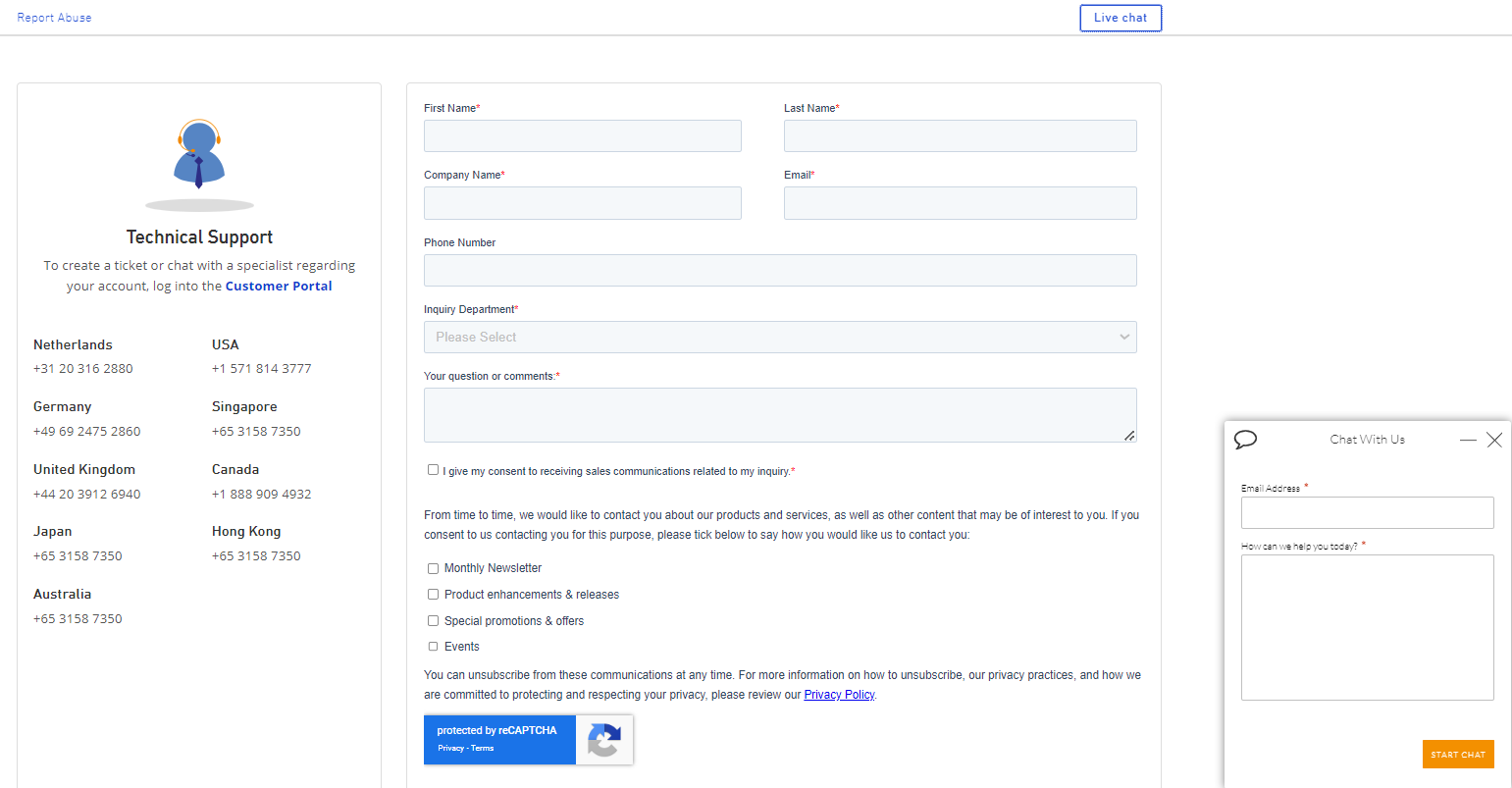
Leaseweb offers a comprehensive range of support options including live chat, email, phone, fax, and an online contact form, all available 24/7. They also provide tiered SLAs with varying response times, from 30 minutes for platinum users to 12 hours for basic support. Additionally, Leaseweb offers extensive self-help resources, including a knowledge base, API documentation, and a status page.

Web Hosting Hub also has 24/7 U.S.-based support accessible via phone, email, and chat. They offer a 90-day money-back guarantee and have dedicated departments for general support, sales, and billing, which are reachable through multiple channels including Skype. However, they lack enterprise support options such as dedicated agents and priority support, setting them apart from Leaseweb’s more diverse offerings.
Leaseweb vs Web Hosting Hub: User feedback
The hosting provider is renowned for its comprehensive hosting services and flexible billing cycles that accommodate different payment durations, which many users find advantageous. It offers options for networking that balance between cost and performance, with the “Premium” network praised for its low latency and efficient routing. However, some users expressed concerns about the high costs incurred from traffic overages, password policies, and the complexity of login procedures. Additionally, there are requests for more diverse payment gateways and a wider variety of system distributions.
Overall, users appreciate the ease of use, affordability, and extensive features offered by this hosting provider. Many reviews praise the customer support for being responsive and knowledgeable, contributing to a generally positive experience. However, some users have noted the interface can be complex and occasionally overwhelming, and there are mixed feelings about the pricing for additional services like SSL. Despite minor inconveniences such as periodic connectivity issues and maintenance times, the hosting provider is highly recommended for its value and efficient support.
Leaseweb vs Web Hosting Hub: FAQ
Which platform is better suited for hosting WordPress websites?
Web Hosting Hub is better suited for hosting WordPress websites as it offers auto-installed WordPress and a free website builder, making it a great choice for users looking for ease of use and quick setup.
Which hosting service offers better security features?
Leaseweb offers better security features, including advanced DDoS IP protection, customizable security profiles, Managed Cyber Security services, and regular penetration testing. Web Hosting Hub provides essential security features like suPHP encryption and a firewall but does not match Leaseweb’s sophisticated and comprehensive security measures.
Which platform offers better customer support?
Both Leaseweb and Web Hosting Hub provide 24/7 support through multiple channels, including phone, email, and live chat. However, Leaseweb also offers tiered support with varying response times and enterprise-level support options, making it more suitable for businesses that require priority assistance.
What are the differences in the control panels offered by each hosting service?
Leaseweb offers multiple control panels such as Plesk, cPanel, and Vesta, tailored for advanced users who need more flexibility in managing their hosting environments. Web Hosting Hub uses cPanel, which includes a drag-and-drop interface and tools like BoldGrid for website building, catering more to users with varying technical skills seeking simplicity.
Which service is more suitable for hosting a high-traffic website?
Leaseweb is more suitable for hosting a high-traffic website due to its high network bandwidth, 99.999% uptime guarantee, and powerful server configurations, including CPUs up to 64 cores and extensive global network presence, ensuring reliability and performance for busy websites.
The making of this blog
We followed a clear, step-by-step process to write and research this article.










